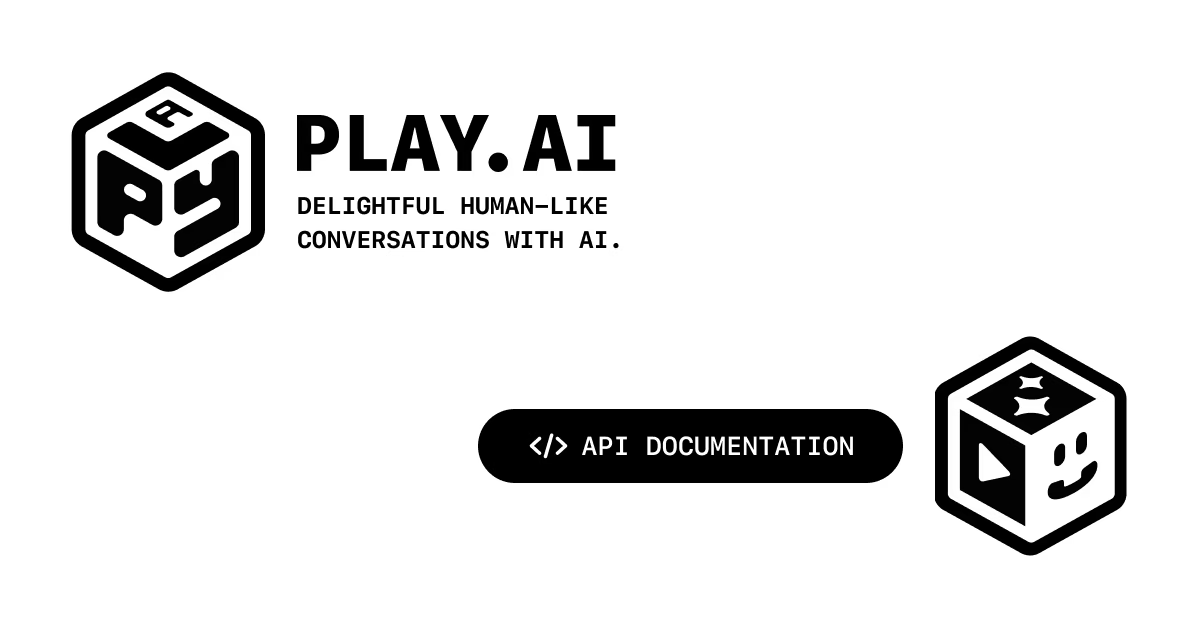The Whispers of a New Voice: Meta's Pursuit of Play AI
The world of artificial intelligence moves at a dizzying pace, doesn't it? One minute we're marveling at chatbots, the next we're talking about AI that can generate entire video clips from a text prompt. And then, just when you think you've got a handle on things, news drops that makes you pause and consider the next frontier. That's exactly how I felt when Bloomberg reported Meta is in talks to acquire Play AI, a startup specializing in voice cloning. It's a move that, if finalized, could profoundly shape how we interact with digital environments and, frankly, how we perceive reality itself.
This isn't just another tech acquisition; it's a strategic maneuver in the ongoing AI arms race. Meta, a company that's already betting big on the metaverse and advanced AI, clearly sees something compelling in Play AI's capabilities. And why wouldn't they? Voice is, after all, one of the most fundamental aspects of human communication. To replicate it convincingly? That's a game-changer.
The Strategic Play: Why Voice Cloning Matters to Meta
So, what exactly does Play AI bring to the table? From what we understand, they're experts in AI voice replication technology. Think about it: not just text-to-speech, but the ability to generate speech in a specific voice, complete with intonation, emotion, and unique vocal characteristics. This isn't science fiction anymore; it's rapidly becoming a reality.
This isn't just about the tech itself, though. It's also about talent. The competition for top AI researchers and engineers is fierce. Acquiring a specialized startup like Play AI isn't just buying technology; it's also bringing in a team of highly skilled individuals who are at the cutting edge of voice AI. That's invaluable in today's landscape.
Unpacking the Technology: The Nuances of Voice Replication
Play AI's expertise likely lies in making these replicated voices incredibly natural and expressive. We're talking about moving beyond the robotic, slightly uncanny valley voices we've heard in the past. This level of fidelity is crucial for applications where the user needs to feel a genuine connection or belief in the digital entity they're interacting with. For Meta, this could mean more engaging AI companions in their virtual worlds, or perhaps even personalized voice interfaces that adapt to your preferences. It's a big leap from simply dictating commands.
Market Implications and the AI Arms Race
This potential deal, while still under negotiation, signals a clear intent from Meta to double down on voice AI. And they're not alone in this pursuit. Tech giants like Amazon, with Alexa, and Google, with Assistant, have already invested heavily in voice technology. This acquisition could certainly intensify that competition. Everyone wants to own the next generation of human-computer interaction, and voice is a huge part of that.
It's a trend we've seen play out repeatedly: larger companies acquiring innovative startups to bolster their capabilities and absorb talent. It's how the industry evolves, really. These smaller, agile companies often push the boundaries, and then the big players come in to integrate those advancements into their broader ecosystems. It's a smart move for Meta, positioning them firmly in the race for advanced AI applications.
The Ethical Echoes: Concerns and Considerations
Now, let's talk about the elephant in the room: the ethical implications of voice cloning. As fascinating as this technology is, it also raises significant concerns. We've already seen the rise of deepfakes, where AI is used to create convincing but fabricated images and videos. Voice cloning adds another layer to this. Imagine the potential for misinformation, identity theft, or even fraud if voices can be perfectly replicated without consent.
It's a tricky balance, isn't it? On one hand, the innovation is incredible and offers genuine benefits for accessibility, entertainment, and communication. On the other, the potential for misuse is undeniable. As this technology becomes more sophisticated and accessible, the need for robust ethical guidelines, transparent usage policies, and perhaps even technical safeguards becomes paramount. Companies like Meta, at the forefront of this development, bear a significant responsibility to ensure their technology is used for good.
Looking Ahead: What This Means for the Future of AI Interaction
If Meta successfully acquires Play AI, what does the future hold for us, the users? I think we can expect more seamless, natural interactions with AI across Meta's platforms. Think about a future where your digital assistant doesn't just sound generic, but has a voice you genuinely enjoy listening to, perhaps even one that sounds like a beloved character or a trusted friend. Or, consider virtual meetings where your avatar's voice perfectly matches your own, even if you're using a text-to-speech input.
The vision is clear: to make digital interactions feel less digital and more human. Voice cloning is a crucial piece of that puzzle. It's about bridging the gap between the physical and virtual worlds, making our digital experiences richer and more immersive. Of course, there will be technical hurdles and user acceptance challenges to overcome. But the direction is set.
A Voice in the Crowd
Meta's reported talks to acquire Play AI are more than just a business transaction; they're a strong signal about the future of AI. Voice is becoming an increasingly critical interface, and the ability to clone and synthesize it realistically opens up a world of possibilities, both exciting and, yes, a little daunting. As consumers, we'll need to stay informed and demand responsible development. For Meta, this could be the sound of their next big leap forward.
